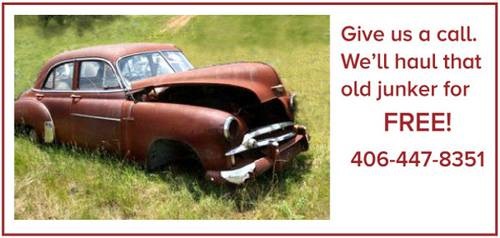The Environmental Health Division of Lewis and Clark Public Health oversees the enforcement of several regulations and ordinances within the boundaries of Lewis & Clark County. These regulations and ordinances are in regards to:
- Air quality
- Community decay
- Junk vehicles
- Onsite wastewater
For more information about each type of regulation or ordinance, use the menu above to select the desired topic.
If you would like to file a complaint or get a status update on a current complaint, please call our office at 406-447-8351.
The Environmental Health Division monitors air quality conditions around Helena in an Air Pollution Control District (see a map of the District here). Within that District, we enforce the Lewis and Clark County Outdoor Air Quality Regulations. These regulations seek to limit the emission of particulate matter from solid fuel burning and other sources during poor air quality events. Poor air quality episodes contribute to negative health outcomes, especially among those with preexisting respiratory conditions.
To see the full Outdoor Air Quality Regulations, click here(PDF, 498KB).
For information about current air quality conditions or the causes and effects of poor air quality episodes, visit the Environmental Health Division Air Quality page here.
The Environmental Health Division enforces the Lewis and Clark County Community Decay Ordinance within the entire boundary of Lewis and Clark County. This ordinance is to control public nuisances created by the accumulation of rubble, debris, junk, or refuse that results in conditions that are indecent, injure health, offend the senses, or obstruct the free use of property, which interferes with the comfortable enjoyment of life or property.
Specific conditions that constitute community decay may include the storage or accumulation of:
- Metal fixtures, junk vehicles, and appliances
- Boxes and building materials
- Wrecked or ruined recreational vehicles
- Dilapidated mobile homes, sheds, or buildings
- Garbage and trash
- Indoor furniture
- Other assorted rubble, debris, refuse, or junk
To see the full Ordinance to Control Community Decay, click here(PDF, 2MB) .
The Environmental Health Division enforces State of Montana junk vehicle laws as included in the Lewis and Clark County Ordinance to Control Community Decay (see previous section). A junk vehicle is defined by law as any "discarded, ruined, wrecked, or dismantled motor vehicle, including component parts, which is not lawfully and validly licensed and remains inoperative or incapable of being driven."
To meet this definition, a vehicle must be:
- On private property;
- Visible from a public roadway;
- Inoperable; and
- Unregistered.
Vehicles that have been abandoned on a city street must be reported to the police department. Vehicles will be hauled away after police confirm they have been abandoned. Junk vehicles not in city limits may be reported directly to Environmental Health for enforcement.
For more information about the State of Montana junk vehicle law and program, see the Montana Department of Environmental Quality Junk Vehicle website page here.
Free Junk Vehicle Hauling
Some vehicles have little or no parts value, and the private wrecking facility may not be interested in buying or hauling your junk vehicle. If this is the case, we can arrange to haul and dispose of your junk vehicle at no out-of-pocket expense to you.
If you would like our office to haul away your junk vehicle, fill out the release form and submit it to our office. We will provide you with a special sticker to place on the vehicle. Within about 2 weeks of receipt of the release form by the haulers, your vehicle will be hauled away.
(PDF, 107KB)Junk Vehicle Release Form(PDF, 107KB)

The Environmental Health Division enforces the Lewis and Clark County Onsite Wastewater Treatment Regulations throughout the whole of Lewis and Clark County. These regulations seek to protect surface water, groundwater, and human health by setting standards for the installation and operation of onsite wastewater treatment systems (also called septic systems). These regulations also prohibit the discharge of wastewater onto the ground surface or in any way that poses a threat to human health.
To see the full Onsite Wastewater Treatment Regulations, click here(PDF, 10MB).
For more information about septic system permitting, installation, or maintenance, visit the Environmental Health Division Onsite Wastewater page here.